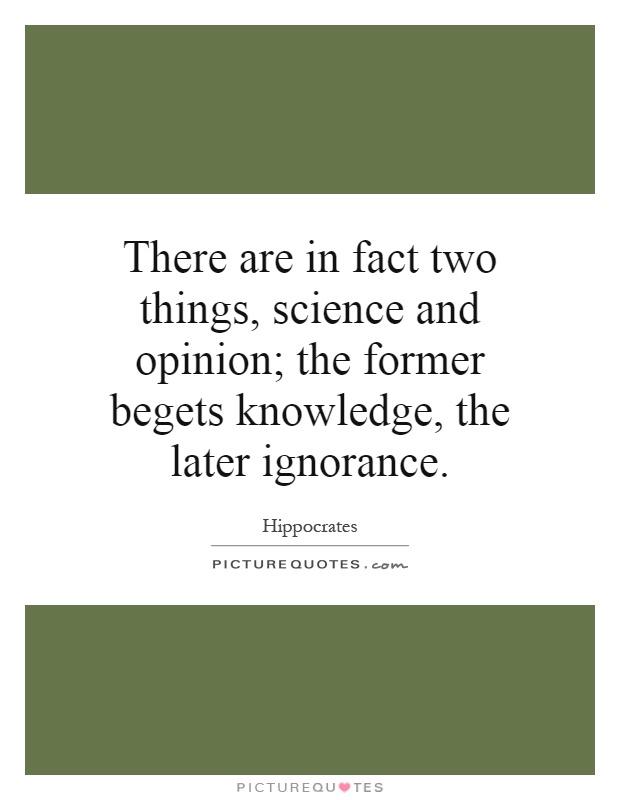There are in fact two things, science and opinion; the former begets knowledge, the later ignorance

There are in fact two things, science and opinion; the former begets knowledge, the later ignorance
Hippocrates, often referred to as the father of medicine, was a Greek physician who revolutionized the field of medicine with his scientific approach to understanding the human body and its ailments. His famous quote, “There are in fact two things, science and opinion; the former begets knowledge, the latter ignorance,” highlights his belief in the importance of relying on empirical evidence and objective observation rather than subjective beliefs and biases.In Hippocrates’ time, medicine was often based on superstition, folklore, and religious beliefs rather than scientific principles. Hippocrates sought to change this by emphasizing the importance of careful observation, experimentation, and logical reasoning in understanding the causes of disease and developing effective treatments. He believed that only through the rigorous application of scientific methods could true knowledge be obtained and medical practices improved.
Hippocrates’ emphasis on science as the source of knowledge and opinion as the source of ignorance is particularly relevant in the field of medicine, where the stakes are high and the consequences of misinformation can be deadly. In Hippocrates’ view, opinions based on personal beliefs, biases, or anecdotal evidence are unreliable and can lead to harmful practices that do not benefit patients. On the other hand, scientific knowledge based on empirical evidence, experimentation, and logical reasoning can lead to advancements in medical understanding and the development of effective treatments.
Hippocrates’ commitment to science over opinion has had a lasting impact on the field of medicine. His emphasis on evidence-based practices and the importance of critical thinking and skepticism in evaluating medical claims laid the foundation for modern medical science. Today, the principles of evidence-based medicine, which prioritize the use of scientific evidence to guide clinical decision-making, are widely accepted and practiced in the medical community.












 Friendship Quotes
Friendship Quotes Love Quotes
Love Quotes Life Quotes
Life Quotes Funny Quotes
Funny Quotes Motivational Quotes
Motivational Quotes Inspirational Quotes
Inspirational Quotes